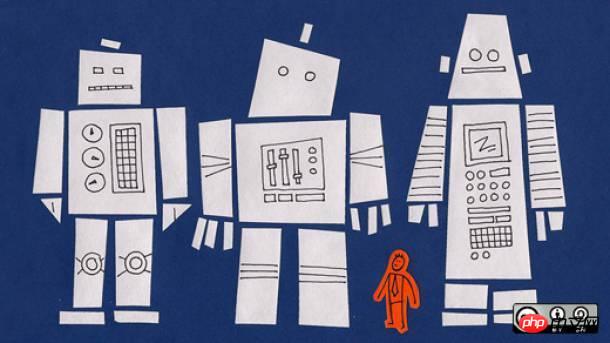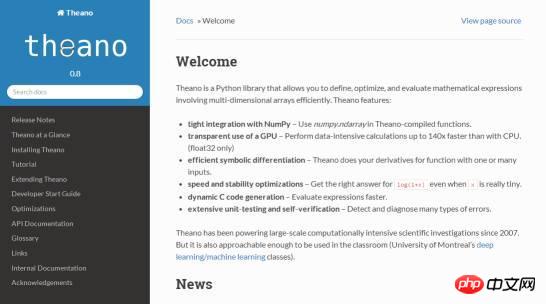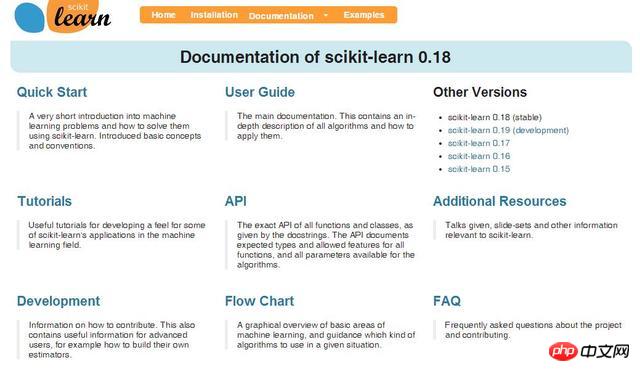It turns out that we can also wander in the world of machine learning without mastering difficult data science. Of course, this journey inevitably requires the help of various big data, artificial intelligence, deep learning and large-scale statistical and analytical tools.

In today’s article, we will learn about the three most popular Python machine learning libraries, which I believe can help everyone bring a smoother data science exploration experience. .
Theano

#Theano currently has more than 25,000 submissions and nearly 300 contributors on GitHub, and the number of forks will be close to 2,000.
2.TensorFlow
 TensorFlow is a set of open source libraries that use data flow graphs for numerical calculations. Although it is just a newcomer in the open source field, this project led by Google already has nearly 15,000 submissions and more than 600 GitHub contributors, and the model library has nearly 12,000 star reviews.
TensorFlow is a set of open source libraries that use data flow graphs for numerical calculations. Although it is just a newcomer in the open source field, this project led by Google already has nearly 15,000 submissions and more than 600 GitHub contributors, and the model library has nearly 12,000 star reviews.
In the first "Open Source Yearbook", TensorFlow was selected as the most worthy fork project in 2016. In the latest "Open Source Yearbook", TensorFlow also appeared many times. The Magenta project based on TensorFlow is even trying to connect machine intelligence with the art field, exploring how to use it to achieve music and artistic creation, and thereby establishing a mixed community of artists, programmers and machine learning researchers. In addition, Tensorflow supports multiple front-end languages, but its support for Python is the best. Python has also been included in the ranking of popular programming trends in 2017.
TensorFlow 1.0 was launched in mid-February this year. Google wrote on its developer blog: "Although it has only been born for a year, TensorFlow has effectively helped researchers, engineers, artists, students and other users complete various tasks, ranging from language translation to early diagnosis of skin cancer. and even in areas such as the prevention of concurrent blindness in diabetic patients.”
3.scikit-learn
 This solution is based on NumPy, SciPy and Matplotlib, and is used by Spotfiy engineers for music recommendation. At OkCupid, we are responsible for evaluating and improving the matching system. At Birchbox, staff are exploring how to use scikit-learn to support the development of new products.
This solution is based on NumPy, SciPy and Matplotlib, and is used by Spotfiy engineers for music recommendation. At OkCupid, we are responsible for evaluating and improving the matching system. At Birchbox, staff are exploring how to use scikit-learn to support the development of new products.




